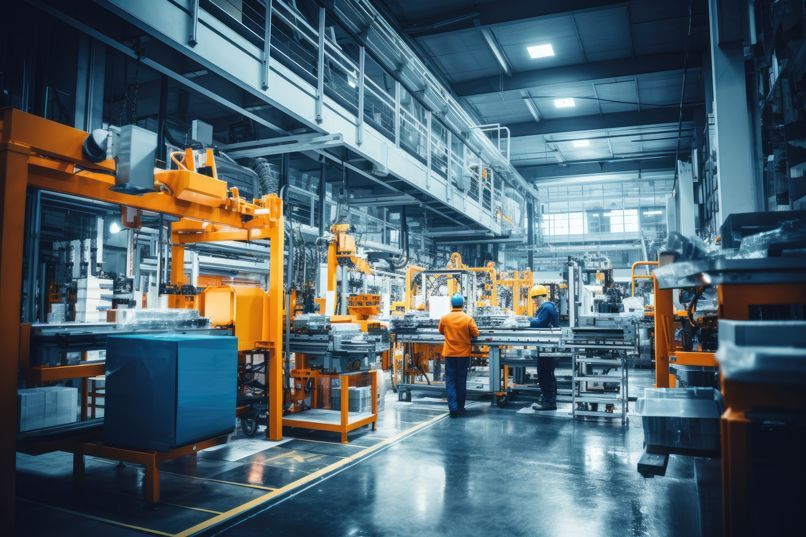Meet the team
Our consortium of industry leaders, academics and government contacts is led by a highly experienced team.
ACM CRC Board

Dr Abby Bloom
Chair
Abby brings to the ACM CRC Board a deep knowledge of complex, heavily regulated and infrastructure-intense industries, business models that deliver growth in the face of industry disruption, boardroom experience required for successful digital transformation, OH&S injury and cost management and expertise in Audit and Risk.
-
Read Dr Abby Bloom's Bio
Abby brings to the ACM CRC Board a deep knowledge of complex, heavily regulated and infrastructure-intense industries, business models that deliver growth in the face of industry disruption, boardroom experience required for successful digital transformation, OH&S injury and cost management and expertise in Audit and Risk.
Abby’s experience and strong skills and capabilities in audit and risk, digital transformation, innovation strategic repositioning and government and stakeholder partnerships are well suited for her role as the ACM CRC Chair.
In this role as ACM CRC Chair, Abby:
- Leads the Board, ensuring they’re working to achieve the CRC’s strategic goals.
- Chairs all Board and Member meetings.
- Chairs the Nomination & Remuneration Committee.
- Helps manage audit and risk as a member of the Audit & Risk Committee.
- Creates a governance and management environment characterised by accountability, trust, and respect.
- Ensures appropriate policies for the CRC.
- Uses her deep understanding of innovative and digital technology to help drive digital transformation and innovation across the CRC with minimal risk.
- Drives the strategic repositioning of the CRC leveraging her exceptional skills in strategic analysis and leadership of complex businesses undergoing significant change.
- Draws on her clear thinking to facilitate systemic problem-solving and effective decision-making through collaboration.
- Helps build and manage government and stakeholder partnerships.
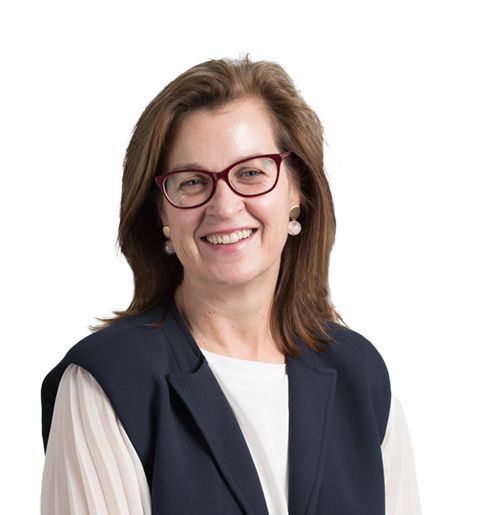
Catherine Cooper
Independent Director
Catherine is a seasoned Chair and Director with extensive board experience across Cooperative Research Centres (CRCs) and a strong focus on fostering collaboration between research, industry and government
-
Read Catherine Cooper's Bio
Catherine is a seasoned Chair and Director with extensive board experience across Cooperative Research Centres (CRCs) and a strong focus on fostering collaboration between research, industry and government. With over 25 years of strategic board and directorship roles, she has been instrumental in driving innovation and sustainable commercial outcomes across sectors like agribusiness, sustainability and advanced technology.
As a Director for Reliable Affordable Clean Energy 2030 CRC, Catherine also supports collaborations aimed at accelerating renewable energy solutions from R&D to commercial readiness, aligning with Australia’s net-zero aspirations. Her corporate governance expertise across these CRCs underscores her commitment to sustainable development, operational excellence and the integration of research with practical, impactful outcomes.
In her roles with CRC CARE, SmartSat CRC, and CRC TiME, Catherine has provided corporate advisory expertise that connects research with applied industry solutions. At CRC CARE, she has supported advancements in environmental risk management; with SmartSat CRC, she has promoted applied research in Australia’s space and satellite sectors; and with CRC TiME, she has focused on sustainable mine rehabilitation, ensuring research aligns with practical environmental and economic outcomes.
Known for her pragmatic, solutions-driven approach, Catherine brings a deep understanding of corporate governance, stakeholder engagement and the alignment of regulatory compliance with strategic commercial goals. Her role in the CRC ecosystem makes her a respected leader in advancing cross-sector partnerships that drive growth, innovation and sustainable development.

Shireane McKinnie
Independent Director
Shireane brings to ACM CRC extensive strategic leadership experience and expertise in complex technical, commercial and personnel environments gained through her experience as a senior executive and non-executive director.
-
Read Shireane McKinnie's Bio
Shireane brings to the ACM CRC extensive strategic leadership experience and expertise in complex technical, commercial and personnel environments gained through her experience as a senior executive and non-executive director.
She is currently a Director of the Independent Project Review Institute, and Deputy Chair of the Information, Telecommunications and Electronics Engineering (ITEE) College board at Engineers Australia. Previously she held positions as Chair of the Advanced Magnetic Ranges Australia (AMRA) Board and Chair of the Department of Education and Training Implementation Committee. She has also held positions on the Services Australia Audit and Risk Committee, the Defence Committee and its Capability Investment and Audit Committees.
Shireane is a highly accomplished leader in acquisition and sustainment of complex, high technology Defence systems, in aerospace, maritime and land environments. As an Honorary Fellow of Engineers Australia, she leads national working groups in Cyber and Artificial Intelligence Engineering, and is an active mentor and STEM supporter who is committed to shaping new talent and professional expertise in emerging fields of engineering.
Shireane is excited by the prospects of the ACM CRC and the opportunities that its success would afford the Australian economy and the organisation’s partners. She is looking forward to applying her extensive knowledge and experience in the many fields that underpin the CRC’s vision, to create a world-class, highly automated, digitally enabled network of designers, manufacturers and service providers.
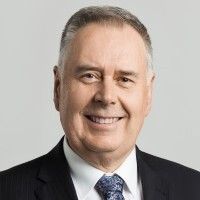
Craig Roy
Independent Director
Craig was Deputy Chief Executive Officer of CSIRO from 2010 to 2018, and previously served two decades as an officer of the Royal Australian Navy. He brings to the ACM CRC Board extensive experience in research and commercialisation strategy, innovation and entrepreneurship across a wide range of global projects and industry sectors.
-
Read Craig Roy's Bio
Craig was Deputy Chief Executive Officer of CSIRO from 2010 to 2018 and previously served two decades as an officer of the Royal Australian Navy.
He brings to the ACM CRC Board extensive experience in research and commercialisation strategy, innovation and entrepreneurship across a wide range of global projects and industry sectors.
He is skilled in business sustainability in complex social, stakeholder and environmental settings, has an MSc (RRMC, Canada) and MBA (MGSM) and is a Fellow of the Australian Institute of Company Directors.
He is Chair of ASX Listed Silex Systems Limited (SLX), Global Laser Enrichment LLC (a joint venture between Silex and Cameco) and the Australian Research Data Commons, and is a Non-executive Director at Sydney Water. He has also undertaken other such board positions across his career.
In this role as an ACM CRC Independent Director, Craig:
- Works with the Board to achieve the CRC’s strategic goals.
- Chairs the Research, IP & Commercialisation Committee.
- Offers research, commercialisation, innovation and entrepreneurship advice based on his extensive experience.
- Helps maintain a governance and management environment characterised by accountability, trust and respect.
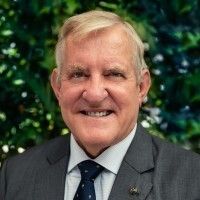
The Hon Ian Macfarlane
Independent Director
Ian has extensive experience in innovation and science policy, programs and commercialisation. He spent eight years as the Cabinet Minister responsible for innovation and science in the Howard and Abbott governments. And, after leaving politics in 2016, he chaired the Innovative Manufacturing CRC, was a board member of the METS Ignited Growth Centre and is currently a board member of CSIRO.
-
Read Hon Ian Macfarlane's Bio
Ian has extensive experience in innovation and science policy, programs, and commercialisation. He spent eight years as the Cabinet Minister, responsible for innovation and science in the Howard and Abbott governments. And, after leaving politics in 2016, he chaired the Innovative Manufacturing CRC, was a board member of the METS Ignited Growth Centre, and is currently a board member of CSIRO.
Originally a farmer by profession, Ian has extensive experience in innovation and science policy, programs, and commercialisation.
He’s also a Non-executive Director of Woodside Energy, Chief Executive of the Queensland Resources Council, a Fellow of the Australian Institute of Company Directors, Honorary Fellow of Qld Academy of Arts and Science, and involved in several not-for-profit organisations.
In this role as an ACM CRC Independent Director, Ian:
- Works with the Board to achieve the CRC’s strategic goals.
- Offers great knowledge in science, innovation, and commercialisation, and in CRCs from having chaired the Innovative Manufacturing CRC.
- Helps maintain a governance and management environment characterised by accountability, trust, and respect.
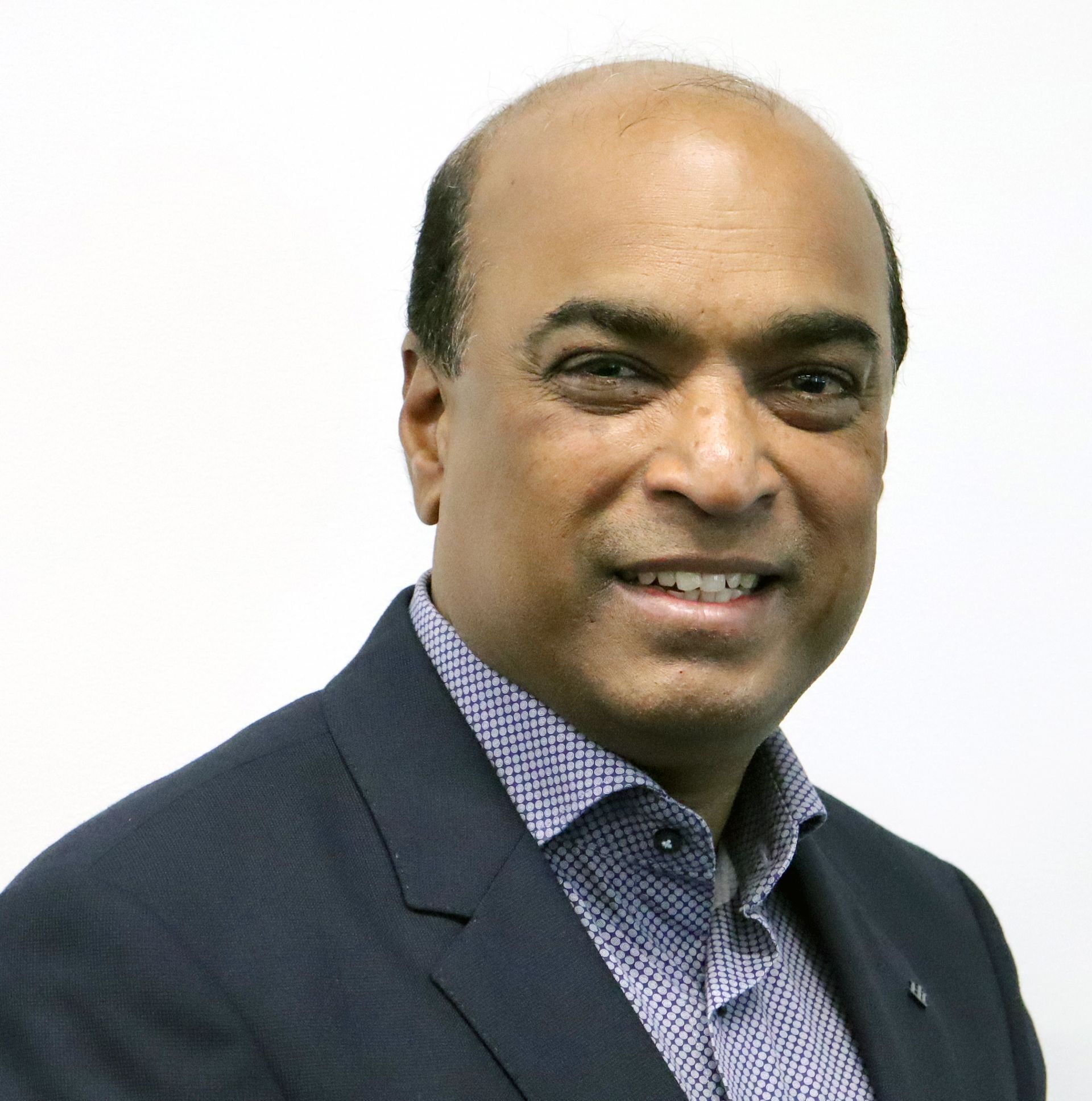
Scientia Prof. Gangadhara Prusty
Director of Research
Scientia Professor Prusty, a distinguished academic at The University of New South Wales School of Mechanical & Manufacturing Engineering, serves as the Director of Research for ACM CRC. He is the visionary behind the establishment of the ARC Training Centre for Automated Manufacture of Advanced Composites (AMAC) and spearheaded the successful bid for ACM CRC.
-
Read Scientia Prof. Ganga Prustry's Bio
Scientia Prof. Prusty, a distinguished academic at The University of New South Wales (UNSW) School of Mechanical & Manufacturing Engineering, serves as the Research Director for ACM CRC. He is the visionary behind the establishment of the ARC Training Centre for Automated Manufacture of Advanced Composites (AMAC) and spearheaded the successful bid for the ACM CRC.
Renowned nationally for his teaching excellence, Professor Prusty specialises in the nano, micro and macro-mechanics of composite materials, finite element analysis, and automated fibre placement for composite structure design and manufacture.
Bridging academia and industry, he champions innovation in composite materials research, propelling the ACM CRC to the forefront of advanced manufacturing in Australia.
In this role as ACM CRC Director of Research, Ganga:
- Delivers oversight over, and coordinates, all four Research Programs.
- Aligns the CRC’s Research Programs with industry partner projects and CRC commercialisation initiatives.
- Works with the CEO to optimise CRC outcomes.
- Drives international research linkages.
- Contributes to Australia’s national innovation engagement across all sectors.
- Works with the Education and Training Program Leader in establishing the CRC’s industry-focused HDR program.
ACM CRC Executive Team
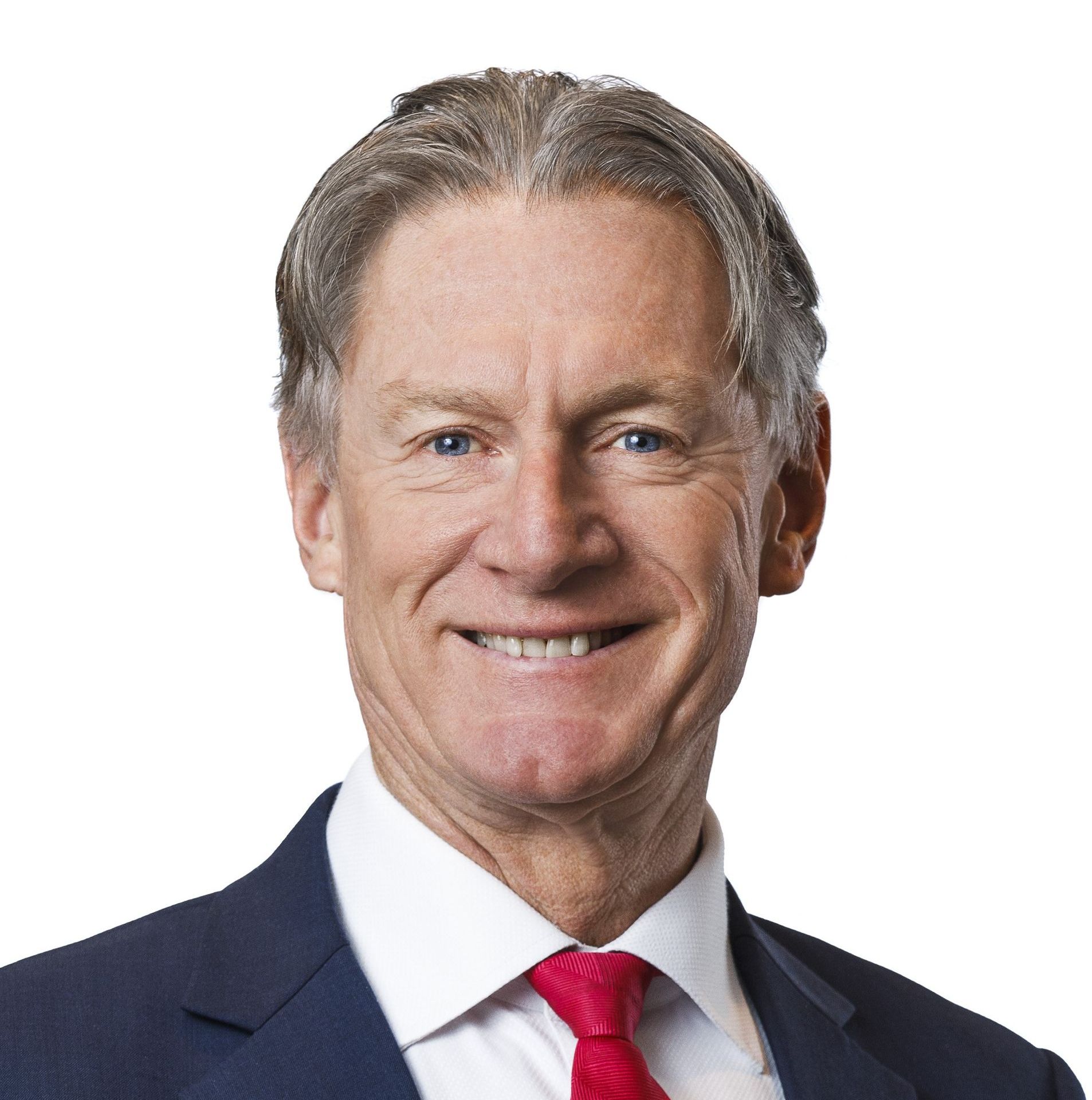
Dr Steve Gower
Chief Executive Officer
Steve has an impressive history of working on CRC Boards and within these collaborations, he brings incredible knowledge of such consortiums, having been a General Manager, Director of Research, Co-Leader of two Research Programs, CEO and Non-executive Board Member at various CRCs. Notably, he was a Non-executive Board Member with the Advanced Composite Structures Limited and ACS II – the management companies of the first and second funded
CRC for Advanced Composite Structures respectively.
-
Read Dr Steve Gower's Bio
Steve has an impressive history of working on CRC Boards and within these collaborations, he brings incredible knowledge of such consortiums, having been a General Manager, Director of Research, Co-Leader of two Research Programs, CEO and Non-executive Board Member at various CRCs.
Notably, he was a Non-executive Board Member with the Advanced Composite Structures Limited and ACS II – the management companies of the first and second funded CRC for Advanced Composite Structures respectively.
In addition to his wealth of experience with CRCs, Steve also brings to ACM CRC an abundance of knowledge in business management, having run his own consultancy for over 17 years. He has also worked in research, government and industry, so has a good grasp of how to manage the relationships between each.
In this role as ACM CRC CEO, Steve:
- Leads the Executive Team, ensuring they’re working to achieve the CRC’s strategic goals.
- Manages the CRC’s Partners to ensure they derive value from the CRC.
- Leverages his extensive experience to develop strategies and new partnerships for the CRC.
- Deploys the appropriate policies for the CRC.
- Helps manage and participates in the CRC’s Committees.
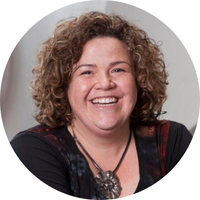
Professor Sally McArthur
Acting Leader, Research Program 1 – High Performance Composite Materials
Professor Sally McArthur is a biomanufacturing expert who uses engineering principles to improve human wellbeing. Her extensive experience in developing industry-academic research collaborations has helped develop new products and services in the medical, environmental and health sectors
-
Read Professor Sally McArthur's Bio
Professor Sally McArthur is a biomanufacturing expert who uses engineering principles to improve human wellbeing. Her extensive experience in developing industry-academic research collaborations has helped develop new products and services in the medical, environmental and health sectors.
As the Director of the Institute for Frontier Materials (IFM) at Deakin University, she leads a team of about 400 staff and students focused on creating materials and manufacturing processes for a circular economy and developing new materials with extraordinary functionality.
Professor McArthur was the Director of Manufacturing Futures Research Institute and its forerunner the Industrial Research Institute Swinburne (IRIS) at Swinburne University. She was previously the Associate Dean Research for the Faculty of Science, Engineering and Technology at Swinburne.
In this acting role as ACM CRC Leader of Research Program 1, Sally:
- Undertakes strategic and resource planning, sets and monitors research projects, milestones and outcomes, and leads and coordinates research activities with industry, research providers and other participants.
- Works with the Director of Research to maintain and grow industry and academic collaborations.
- Works with the Education and Training Program Leader to ensure a high level of HDR and other student engagement.
- Manages the Project Agreements and maintains oversight of the commercial and technical outputs of the project outcomes.
- Monitors new technical developments in the automation of composite manufacturing to ensure CRC partners are fully informed in new technologies.

Professor Garth Pearce
Leader, Research Program 2 – Manufacturing Processes
Garth is a Professor of Aerospace Engineering with the School of Mechanical and Manufacturing Engineering at
The University of New South Wales. He has an extensive track record of translational and applied research in the field of composite materials and structural mechanics with a particular focus on development of new products and processes with industry.
-
Read Professor Garth Pearce's Bio
Garth is a Professor of Aerospace Engineering with the School of Mechanical and Manufacturing Engineering at the University of New South Wales. He has an extensive track record of translational and applied research in the field of composite materials and structural mechanics, with a particular focus on development of new products and processes with industry.
In addition to his role as Professor of Aerospace Engineering at UNSW Sydney, Garth also serves as the Deputy Head of School (Education) responsible for the delivery of four undergraduate and five postgraduate coursework programs to around 2500 students annually.
In this role as ACM CRC Leader of Research Program 2, Garth:
- Undertakes strategic and resource planning, sets and monitors research projects, milestones and outcomes, and leads and coordinates research activities with industry, research providers and other participants.
- Works with the Director of Research to maintain and grow industry and academic collaborations.
- Works with the Education and Training Program Leader to ensure a high level of HDR and other student engagement.
- Manages the Project Agreements and maintains oversight of the commercial and technical outputs of the project outcomes.
- Monitors new technical developments in the automation of composite manufacturing to ensure CRC partners are fully informed in new technologies.
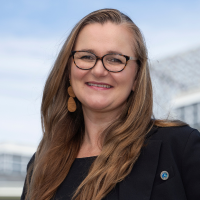
Professor Anna Paradowska
Deputy Program Leader, Research Program 3 – Simulation and Performance Prediction
Anna is a leader in industry-driven research and in the application of science at large-scale facilities to solve manufacturing problems. She focuses on developing commercial and scientific research programs to use neutron and synchrotron technology to support Australian and global industry. She has ongoing commercial and scientific collaborations in characterisation, improvements and assessment of manufacturing processes with several key industry organisations.
-
Read Professor Anna Paradowska's Bio
Anna is a leader in industry-driven research and in the application of science at large-scale facilities to solve manufacturing problems. She focuses on developing commercial and scientific research programs to use neutron and synchrotron technology to support Australian and global industry.
She has ongoing commercial and scientific collaborations in characterisation, improvements, and assessment of manufacturing processes with several key industry organisations.
Anna has made significant individual contributions to the field of materials engineering and manufacturing that has led to high-value improvements to characterisation of manufacturing processes at large-scale facilities in Australia and overseas, resulting in direct impacts on the aerospace, defence, pipelines, civil and rail industry sectors.
In this role as ACM CRC Leader of Research Program 3, Anna:
- Undertakes strategic and resource planning, sets and monitors research projects, milestones and outcomes, and leads and coordinates research activities with industry, research providers and other participants.
- Works with the Director of Research to maintain and grow industry and academic collaborations.
- Works with the Education and Training Program Leader to ensure a high level of HDR and other student engagement.
- Manages the Project Agreements and maintains oversight of the commercial and technical outputs of the project outcomes.
- Monitors new technical developments in the automation of composite manufacturing to ensure CRC partners are fully informed in new technologies.
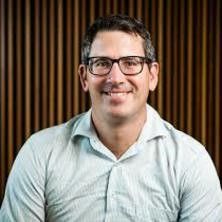
Associate Professor Michael Heitzmann
Program Leader, Research Program 4 – Design and Integration
Michael is the Co-Director of the Centre for Advanced Materials Processing and Manufacturing at
The University of Queensland.
-
Read Associate Professor Michael Heitzmann's Bio
Michael is the Co-Director of the Centre for Advanced Materials Processing and Manufacturing at The University of Queensland.
In this role as ACM CRC Leader of Research Program 4, Michael:
- Undertakes strategic and resource planning, sets and monitors research projects, milestones and outcomes, and leads and coordinates research activities with industry, research providers and other participants.
- Works with the Director of Research to maintain and grow industry and academic collaborations.
- Works with the Education and Training Program Leader to ensure a high level of HDR and other student engagement.
- Manages the Project Agreements and maintains oversight of the commercial and technical outputs of the project outcomes.
- Monitors new technical developments in the automation of composite manufacturing to ensure CRC partners are fully informed of new technologies.
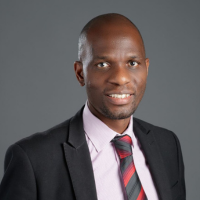
Professor Everson Kandare
Education & Training Program Leader
Everson is an Associate Professor of Aerospace Engineering with the School of Engineering at RMIT University. He has extensive research experience in translational and applied composites research and is currently the Research Lead for the Multifunctional Composite Research cluster at RMIT University.
-
Read Associate Professor Everson Kandare's Bio
Everson is an Associate Professor of Aerospace Engineering with the School of Engineering at RMIT University. He has extensive research experience in translational and applied composites research and is currently the Research Lead for the Multifunctional Composite Research cluster at RMIT University.
Everson’s research interests encompass a broad spectrum, ranging from high-performance and multifunctional composites to fire safety and structural resilience. With over 15 years dedicated to composites research in Australia, Everson has forged impactful research collaborations with key Australian defence and composites manufacturing industry entities including the Defence Science and Technology Group. Notably, his prior involvement with the Advanced Composite Structures CRC underscores his commitment to advancing Australian-developed composites technology, particularly fire structural resistance evaluation and modelling of critical infrastructure.
Everson has led groundbreaking and translational research projects with Australian SMEs, focusing on upcycling waste materials into value-added composite products and developing environmentally friendly fireproofing solutions for critical infrastructure. His research extends to creating advanced multifunctional composites with self-healing and damage-sensing capabilities, further cementing his reputation as a research leader in composites.
Within RMIT, Everson plays a pivotal role in shaping the next generation of engineers. He coordinates and delivers Undergraduate and Postgraduate Courses in composite materials and structures, while also serving as the Program Manager for the Master of Aerospace Engineering.
As the leader of the ACM CRC Education and Training Program, Everson is dedicated to bridging the translational research gap between academia and industry, increase industry research engagement, enhance capabilities, and develop skills in advanced composites manufacturing by:
- Cultivating a new cohort of industry-ready Higher Degree by Research (HDR) graduates to help transform the Australian composites manufacturing landscape.
- Proactively addressing gender inequality through promoting equal opportunities, implementing policies to prevent discrimination, providing mentorship and support for women in leadership roles, and fostering a culture of inclusivity and diversity.
- Developing targeted industry training packages that will help establish Australia’s sovereign composites manufacturing capability and elevate trade skills in 21st century composite manufacturing processes, driving innovation and competitiveness in the global market.

Iain Walker
Manager, Business and Commercial
Iain has held numerous roles with responsibility for R&D, commercial sales and marketing, commercialisation and IP management of research outcomes. His previous role was with the University of New South Wales, constructing and closing a diverse range of multi-partner industry and academic engagements related to the composites sector.
-
Read Iain Walker's Bio
Iain has held numerous roles with responsibility for R&D, commercial sales and marketing, commercialisation, and IP management of research outcomes. His previous role was with the University of New South Wales, constructing and closing a diverse range of multi-partner industry and academic engagements related to the composites sector.
He is experienced at technically and financially leading translational research outcomes collaborating with SMEs to large scale industry partners with several sectors.
Iain brings to the CRC extensive patent and IP management experience arising from a portfolio of over 150 patents.
He’s held commercial business development and systems engineering roles at leading companies as well as senior consulting roles at notable organisations.
In this role as ACM CRC Business and Commercial Manager, Iain:
- Manages all CRC business operations and commercial elements of collaborative projects.
- Assists with project collaborations to define intellectual property and translational commercialisation/licencing outcomes.
- Drafts Project Agreements and oversees the commercial and financial tracking of project outcomes.
- Collaborates with industry and academic stakeholders to plan, track and achieve the CRC’s industry development and economic growth goals.
- Oversees the operational and governance compliance obligations of the CRC.
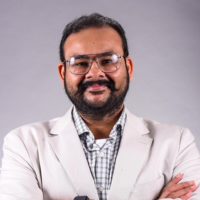
Dr Puneet Garg
Research Portfolio Manager
Puneet brings a wealth of diverse experience to ACM CRC. Holding a PhD in Materials Engineering, he has developed technologies that have been successfully commercialised. His combined experience spans over 10 years, during which he has worked as a researcher in materials, a lecturer in aerospace and composites, and has successfully managed his own business, providing services to clients worldwide.
-
Read Dr Puneet Garg's Bio
Puneet brings a wealth of diverse experience to ACM CRC. Holding a PhD in Materials Engineering, he has developed technologies that have been successfully commercialised. His combined experience spans over 10 years, during which he has worked as a researcher in materials, a lecturer in aerospace and composites, and has successfully managed his own business, providing services to clients worldwide.
He notably served as a Research Assistant with Cooperative Research Australia, an organisation established to support the Cooperative Research Centres. In this capacity, Puneet contributed to CRC benchmarking reports, member organisation surveys, and research management.
Puneet’s contribution to ACM CRC is enriched by his extensive knowledge in the field of composites, gained through his academic background, his expertise in project management and commercialisation from his business ventures, and his understanding of CRC operations and process improvements, acquired during his tenure at CRA.
In his role as ACM CRC Research Portfolio Manager, Puneet:
- Manages ACM CRC Research Portfolios and collaborates with Project Leads to achieve key milestones.
- Assists in steering R&D projects towards commercial and scalable outcomes.
- Tracks milestone progress and undertakes financial management for Commonwealth reporting.
- Provides high-level operational, project management, and process improvement support to ACM CRC.
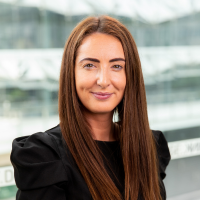
Nicole Phelan
Research Partnership Manager
Nicole brings extensive experience in CRCs and project management, with a focus on driving research initiatives to successful outcomes. She has worked across various sectors, including digital health, mining economies, and green biotechnology, developing strategic plans, coordinating complex projects, and fostering strong stakeholder relationships.
-
Read Nicole Phelan's Bio
Nicole brings extensive experience in CRCs and project management, with a focus on driving research initiatives to successful outcomes. She has worked across various sectors, including digital health, mining economies, and green biotechnology, developing strategic plans, coordinating complex projects, and fostering strong stakeholder relationships.
During her tenure at the Climate Change Cluster, Nicole managed the Deep Green Biotech Hub, overseeing the Green Light Accelerator Program, the world's first algae accelerator dedicated to supporting the development of algae biotech solutions across a broad range of industries in NSW. She also hosted the inaugural Algae Business Summit.
Driven by a passion for sustainability and innovation, Nicole completed a Graduate Certificate in Business Administration from UTS in 2023 and is now pursuing a Master’s in Sustainable Leadership, expected to complete in mid-2025. This further study aligns with her commitment to advancing sustainable practices within research and project management, aiming to make a positive impact on the environment and society.
In her role as ACM CRC Research Relationship Manager, Nicole:
- Develop and implement effective systems and tools for CRC operations, ensure timely project and HQ acquittals in the CRC management system (Knack), and build trusted relationships with team members and stakeholders.
- Provide operational support to the CEO, prepare and distribute correspondence, create and prepare documents, and monitor CRC compliance requirements.
- Provide regular project status updates, support the CEO and Director of Research with executive reports and funding applications, and collaborate on promotional materials.
- Act as the ACM point of contact for enquiries, build collaborative relationships with stakeholders, manage negotiations, and ensure professional interactions.
- Analyse and improve processes, implement standardised procedures, and champion a high-performance and accountability culture.

Connie Severino
Executive Assistant and Events Coordinator
Connie is a dynamic and multifaceted professional with nearly two decades of experience in neuroscience clinical research, project and program management and executive support.
-
Read Connie Severino's Bio
Connie is a dynamic and multifaceted professional with nearly two decades of experience in neuroscience clinical research, project and program management, and executive support.
Connie's journey through the realms of neuroscience clinical research has honed her project and program management skills, allowing her to grasp complex, multifaceted initiatives with ease. Her meticulous attention to detail and relentless commitment to achieving milestones make her perfect for this role.
In this role as ACM CRC Executive Assistant and Events Coordinator, Connie:
- Helps to streamline CRC operations.
- Manages critical tasks helping to enhance overall efficiency.
- Plans and delivers memorable and impactful events.
- Supports the CEO and Executive Team with day-to-day business as usual activities.
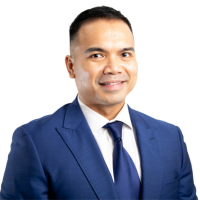
Jonas Soliva
Office and Marketing Communications Coordinator
Jonas brings to ACM CRC over 10 years of experience in office management, finance administration and marketing, committed to building strong relationships and ensuring ongoing communication.
-
Read Jonas Soliva's Bio
Jonas brings to ACM CRC over 10 years of experience in office management, finance administration and marketing, committed to building strong relationships and ensuring ongoing communication.
With a background in office management, Jonas is highly experienced in streamlining administrative processes and ensuring the smooth day-to-day operations of the office.
He has spearheaded impactful marketing campaigns, coordinated successful events, and implemented effective social media strategies across the Asia Pacific region. He is also well versed in coordinating office projects, staff activities and admin/finance support, and seeks the continuous improvement of office processes and procedures.
In this role as ACM CRC Office and Marketing Communications Coordinator, Jonas:
- Leverages his extensive office experience to keep the CRC’s daily operations on track.
- Supports the CRC CEO with managing events and other marketing activities.
- Assists with internal and external communications needs.
ACM CRC Postdoc Researchers
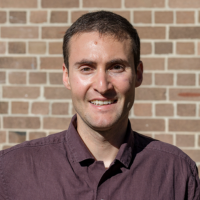
Dr Vladislav Yakubov
Postdoc Researcher
Dr. Yakubov is currently an additive manufacturing postdoctoral research associate at
The University of Sydney who received his PhD in mechanical engineering in 2022.
-
Read Dr Vladislav Yakubov's Bio
Dr. Yakubov is currently an additive manufacturing postdoctoral research associate at The University of Sydney who received his PhD in mechanical engineering in 2022.
He brings a fantastic wealth of expertise to the HERA project and a strong academic background in additive manufacturing techniques and novel material characterisation techniques of welded and 3-D printed metal composites.
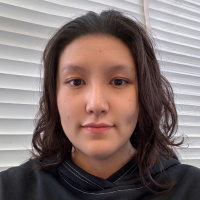
Dr Yaning Wei
Postdoc Researcher
Dr Yaning Wei graduated from
The University of Sydney in 2023 with the Faculty of Engineering PhD Completion Award
-
Read Dr Yaning Wei's Bio
Dr Yaning Wei graduated from The University of Sydney in 2023 with the Faculty of Engineering PhD Completion Award.
Currently, she holds a position as a postdoctoral researcher in the School of Civil Engineering at the University of Sydney, where she works under the supervision of Dr Ali Hadigheh and is a member of the Smart Materials and Sustainable Structures (SMS2) group.
Dr Wei is involved in the second ACM CRC supporting project that will focus on sustainable waste management in the composite industry. This project will develop a comprehensive market analysis of the recycling potential of fibre-reinforced plastic (FRP) composite materials in Australia, addressing the pressing issue of sustainable waste management in the composites industry.
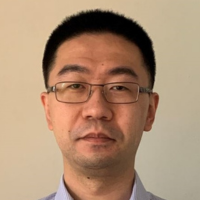
Dr Yidou Wang
Postdoc Researcher
Dr Yiduo Wang received his DPhil Engineering Science degree in 2023 from the University of Oxford as a member of Oxford Robotics Institute (ORI).
-
Read Dr Yidou Wang's Bio
Dr Yiduo Wang received his DPhil Engineering Science degree in 2023 from the University of Oxford as a member of the Oxford Robotics Institute (ORI).
He is a postdoctoral research associate in the Australian Centre for Robotics (ACFR) at The University of Sydney under the supervision of Prof Ian Manchester and Dr Viorela Ila.
Dr Wang's research focuses on robot perception, localisation and navigation, and expands to related fields such as control and planning.
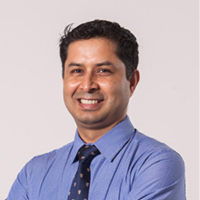
Dr Binayak Bhandari
Postdoc Researcher
Dr Binayak Bhandari is currently a Research Associate at the
University of New South Wales (UNSW Sydney). He is a recipient of the Australian Government’s "Distinguished Talent Visa" as well as among the “top 2% of scientists worldwide”, as per Stanford University’s ‘Updated science-wide author databases of standardized citation indicators’, in the fields of industrial automation, materials, and multidisciplinary engineering.
-
Read Dr Binayak Bhandari's Bio
Dr. Binayak Bhandari is currently a Research Associate at the University of New South Wales (UNSW Sydney). He is a recipient of the Australian Government’s "Distinguished Talent Visa" as well as among the “top 2% of scientists worldwide”, as per Stanford University’s ‘Updated science-wide author databases of standardized citation indicators’, in the fields of industrial automation, materials, and multidisciplinary engineering.
Before relocating to Australia, he received his PhD (2014) from Seoul National University, South Korea and served as Assistant Professor and department chair at Woosong University, Daejeon, South Korea for seven years.
Dr Bhandari is involved in the ACM project with Gowing Bros, which aims to design and manufacture a compact and lightweight smart travel surfboard.
ACM CRC PhD Students
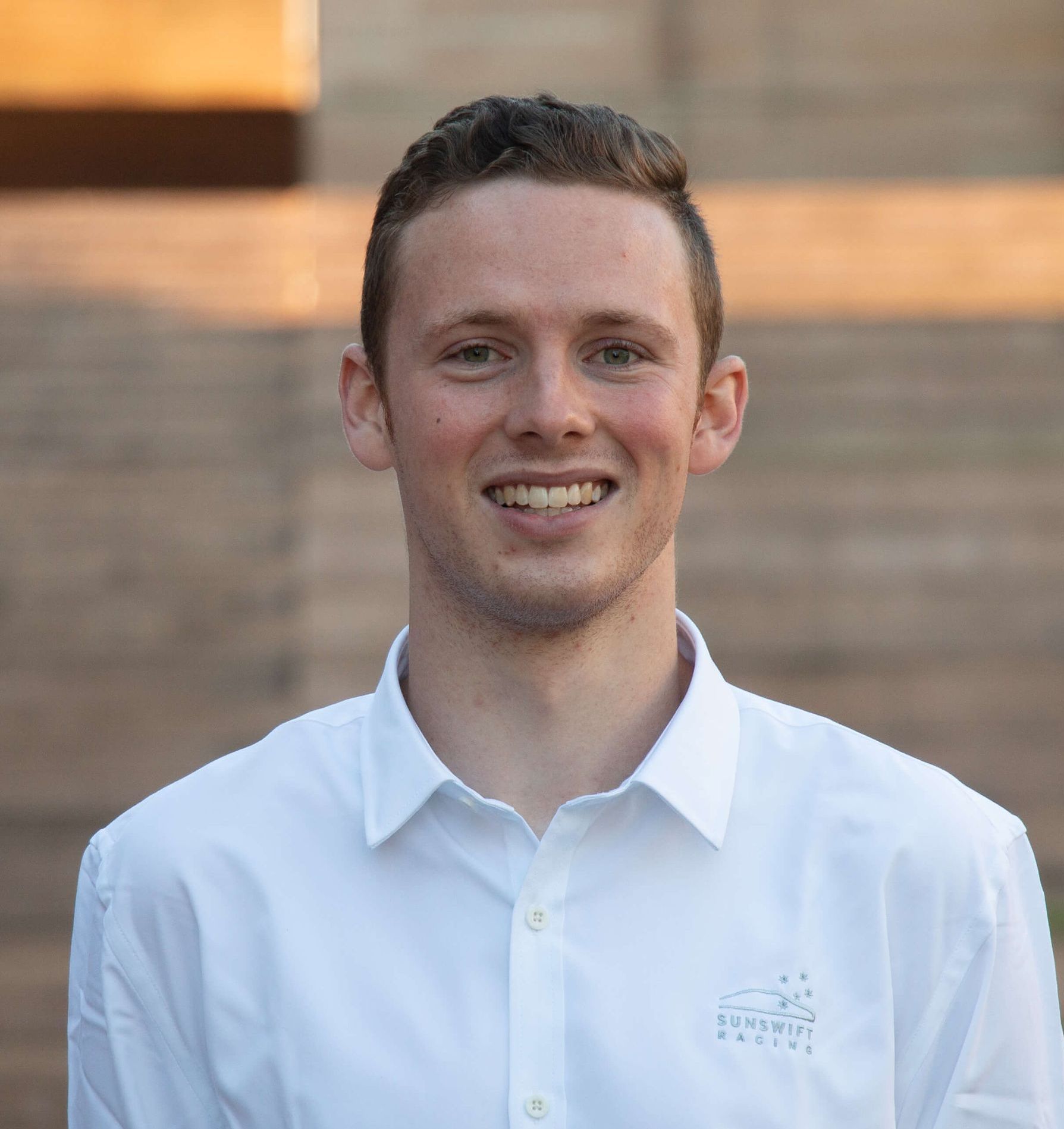
Alex Air
PhD student
Alex is a final year Mechanical Engineering PhD candidate in with ACM CRC research partner,
The University of New South Wales (UNSW Sydney). He has a deep passion for composite materials and advanced manufacturing and an ambition to become a leader in the automotive and aerospace industries.
-
Read Alex Air's Bio
Alex is a final year Mechanical Engineering PhD candidate in with ACM CRC research partner, The University of New South Wales (UNSW Sydney). He has a deep passion for composite materials and advanced manufacturing and an ambition to become a leader in the automotive and aerospace industries.
In collaboration with the CRC’s Director of Research, Professor Gangadhara Prusty, Alex recently published a paper on “Manufacturing feasibility of a bend free ellipsoidal composite pressure vessel using automated fibre placement”.
His research and industrial interests include: automated fibre placement, composite pressure vessels, advanced composites, and hydrogen fuel cell and battery electric vehicles.
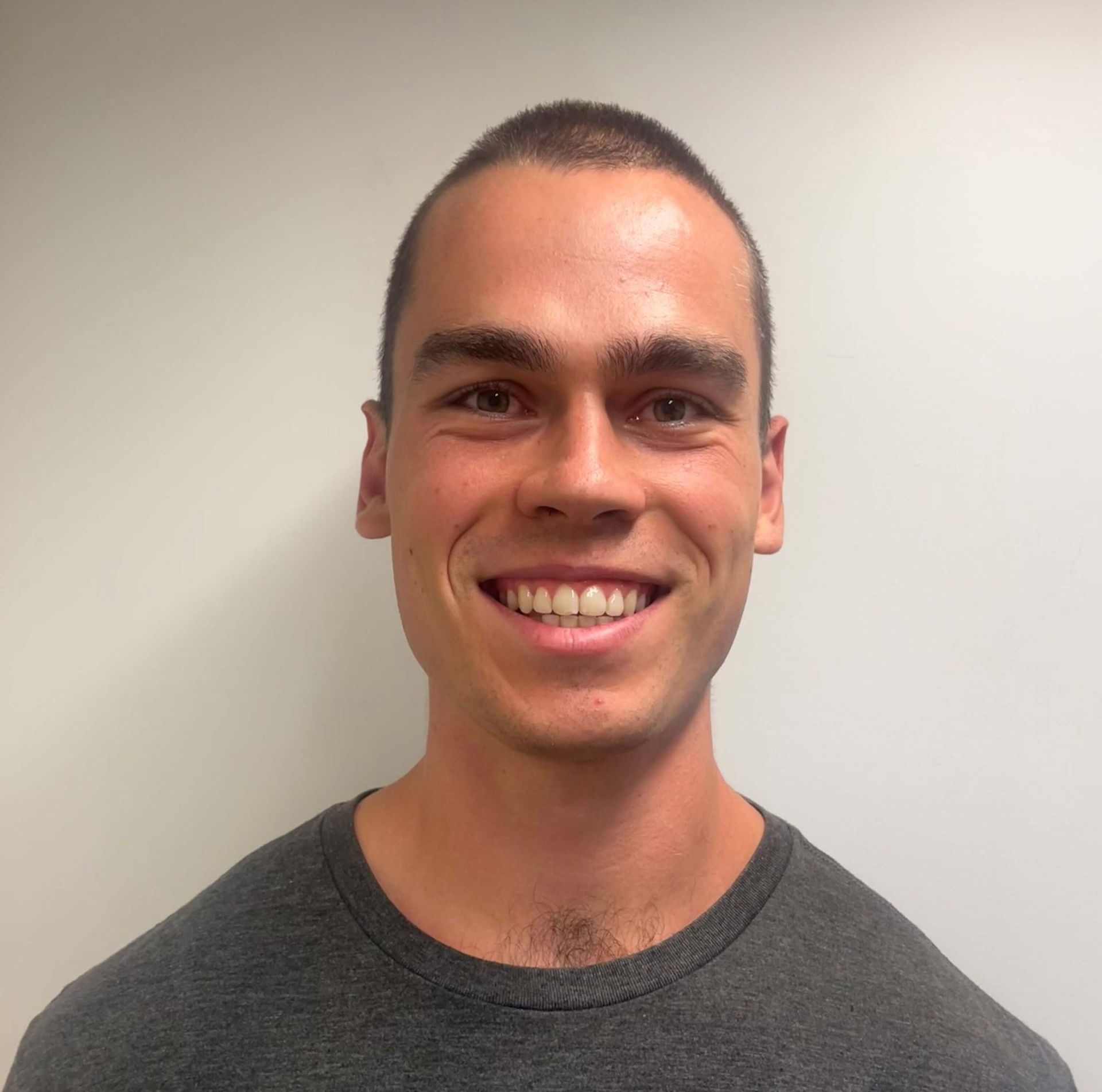
Chris Jenkins
PhD student
Chris is a PhD candidate with ACM CRC research partner,
The University of New South Wales (UNSW Sydney), prior to which he completed his Bachelor of Engineering.
-
Read Chris Jenkins' Bio
Chris is PhD candidate with ACM CRC research partner, The University of New South Wales (UNSW Sydney), prior to which he completed his Bachelor of Engineering.
He has always been fascinated with understanding how things work, and strives to work in the automotive industry following his PhD completion.
His specific areas of interest include mould-free composite manufacturing, out of autoclave manufacturing, and hybrid composites.
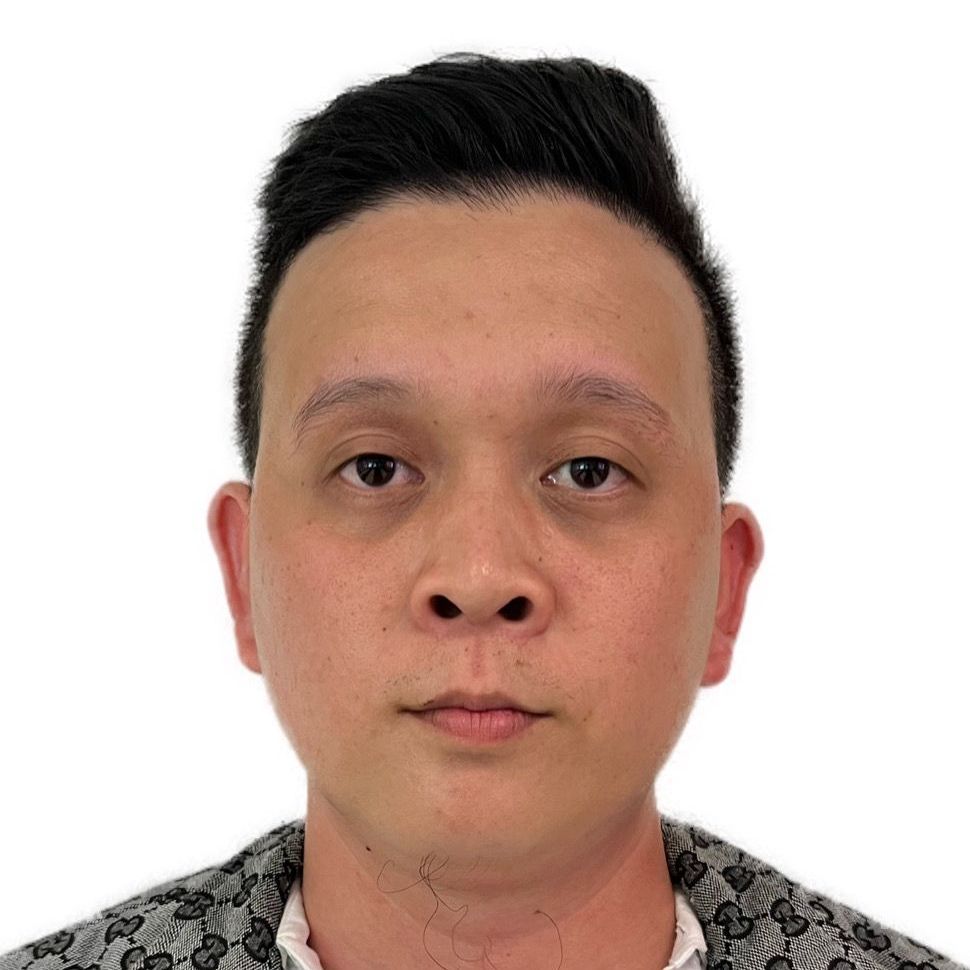
Van Thu Huynh
PhD student
Van is a PhD candidate with ACM CRC research partner,
The University of Sydney. Prior to this, he completed his Bachelor's degree in Civil Engineering at the University of Architecture in Ho Chi Minh City, Vietnam.
-
Read Van Thu Huynh's Bio
Van is PhD candidate with ACM CRC research partner, The University of Sydney. Prior to this, he completed his Bachelor's degree in Civil Engineering at the University of Architecture in Ho Chi Minh City, Vietnam.
Van was subsequently granted a full scholarship to pursue both a Masters and a Doctor of Engineering degree at Chulalongkorn University in Thailand, where his thesis work involved applying and developing probabilistic machine learning models for assessing the reliability of structural design and topology optimisation.
Van is involved in the HERA project, and is excited to be a part of something so high-tech.
His specific areas of interest include: probabilistic machine learning models for reliability-based design and topology optimisation; physics-integrated deep learning for reliability estimation of dynamical systems; Bayesian optimisation and swarm intelligence for solving large-scale and complex engineering problems; active learning for Gaussian process-based global sensitivity analysis; Bayesian model updating and solutions for non-convex inverse problems; and topology optimisation, simulation technology & 3D printing.
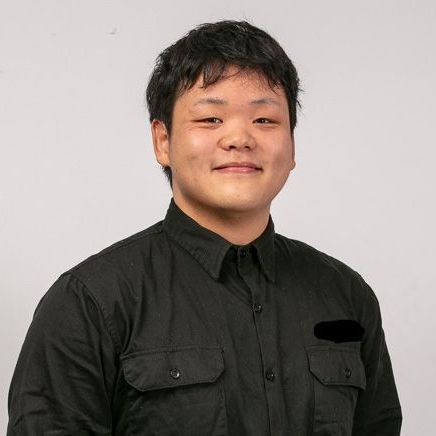
Dex Chang
PhD student
Dex is a PhD candidate with ACM CRC research partner,
The University of Sydney. His thesis focuses on the connection design in composite timber-steel structures using Circular Design 4.0 technology.
-
Read Dex Chang's Bio
Dex is a PhD candidate with ACM CRC research partner, The University of Sydney. His thesis focuses on the connection design in composite timber-steel structures using Circular Design 4.0 technology.
Prior to this, Dex completed his Bachelor's degree in Civil Engineering at Harbin Institute of Technology (China) in 2020, followed by a Master of Professional Engineering degree from The University of Sydney in 2023.
His specific areas of interest include Circular design 4.0, Artificial Intelligence, Virtual Reality, BIM, and digital twins.
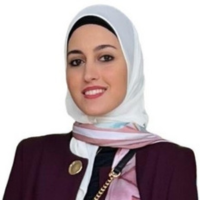
Sara Ahmed
PhD student
Sara is a dedicated PhD candidate at
The University of Western Australia, beginning her studies on February 15, 2023 in structural engineering.
-
Read Sara Ahmed's Bio
Sara is a dedicated PhD candidate at The University of Western Australia, beginning her studies on February 15, 2023, in structural engineering.
Her research, in collaboration with FUZE, focuses on the rehabilitation of offshore structural elements in Marine environments.
She completed her master’s degree at the American University of Sharjah, where her work focused on developing materials for 3D printing technology. Following this, she worked as a research associate, publishing several papers on recycled concrete, UHPC, and FRP RC beams with sustainability as her primary focus.
Sara values her involvement with the ACM CRC and eagerly anticipates engaging with the industry to address practical challenges.
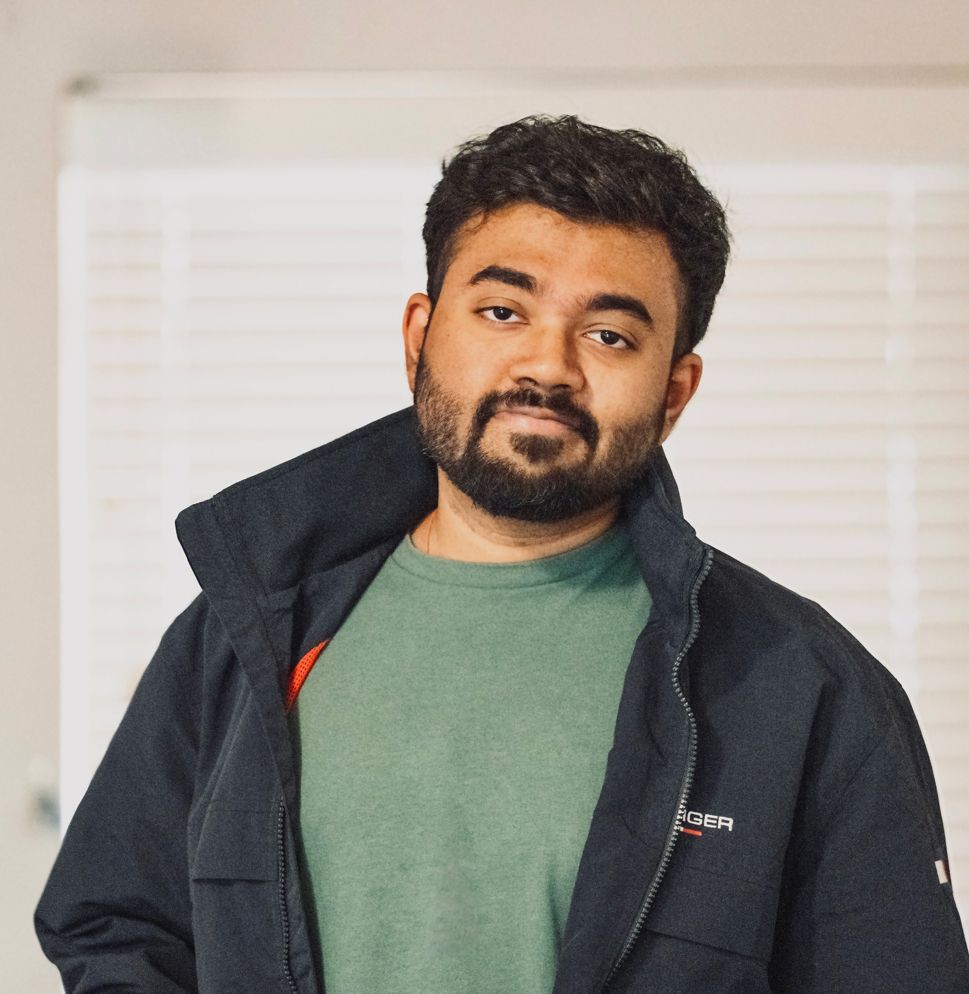
Sriram Padma
PhD student
Sriram is an Aerospace Engineer, currently pursuing his doctorate in structural health monitoring using embedded sensor technology at
The University of Western Australia.
-
Read Sriram Padma's Bio
Sriram is an Aerospace Engineer, currently pursuing my doctorate in structural health monitoring using embedded sensor technology at The University of Western Australia.
Along with a joint master’s degree from Nanyang Technological University (Singapore) and Technical University of Munich (Germany), Sriram has extensive experience in the repair and development of composite aero-engine structures in industry leading projects with the Rolls Royce UTC.
He is passionate about innovation and structural integrity, striving for sustainable engineering methods whilst aiming for enhanced safety and reliability of components through cutting-edge monitoring techniques.
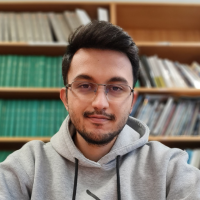
Sina Mansourdehghan
PhD student
Sina is a civil engineer specialising in structural engineering with a background and keen interest in data science.
-
Read Sina Mansourdehghan's Bio
Sina is a civil engineer specialising in structural engineering with a background and keen interest in data science.
Sina is pursuing a PhD at The University of Western Australia, focusing on integrating computer science into structural analysis and monitoring.
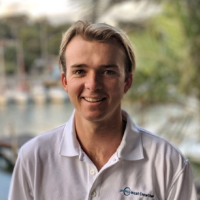
Joshua Grosser
PhD student
Josh is a mechanical engineer with experience in the maritime and composites industry. He is currently working with our Industry partner, Ocius Technology, with the design and build of the Bluebottle USVs (unmanned surface vessels).
-
Read Joshua Grosser's Bio
Josh is a Mechanical Engineer with experience in the maritime and composites industry. He is currently working with our Industry partner, Ocius Technology, with the design and build of the Bluebottle USVs (unmanned surface vessels).
Recently enrolled at The University of New South Wales (UNSW Sydney) as an MPhil student, Josh is completing an industry research masters focussed on developing the Bluebottle’s wave propulsion flipper.
Teamed with Associate Professor Fangbao Tian and Associate Professor Garth Pearce, they are using data feedback from Ocius trials as inputs into Associate Professor Tian’s FSI solver to iterate and improve the vessel’s performance.
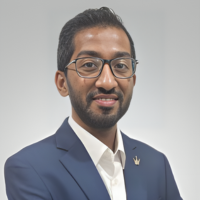
Mohammed Malaibari
PhD student
Mohammed is a PhD candidate in the School of Mechanical and Manufacturing Engineering at
The University of New South Wales (UNSW Sydney).
-
Read Mohammed Malaibari's Bio
Mohammed is a PhD candidate in the School of Mechanical and Manufacturing Engineering at The University of New South Wales (UNSW Sydney).
He holds a Master of Science in Mechanical and Manufacturing Engineering from the same institution. His primary research interests include Digital Twin, Knowledge Graph, Data Management, Industry 4.0, and Circular Economy.
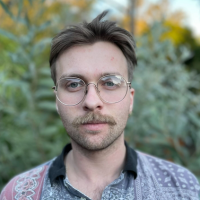
Roan Morwood-Portoles
PhD student
Roan is a PhD candidate with ACM CRC research partner,
The University of Queensland (UQ), prior to which he completed a Bachelor's Degree and Masters Degree in Mechanical & Aerospace Engineering at UQ.
-
Read Roan Morwood-Portoles' Bio
Roan is a PhD candidate with ACM CRC research partner, The University of Queensland (UQ), prior to which he completed a Bachelor's Degree and Masters Degree in Mechanical & Aerospace Engineering at UQ.
He has experience in the construction and boat building industries and completed his thesis on the design and characterisation of polymer matrix composite materials for use as thermal protection systems (TPS).
His current PhD topic is on developing tools for optimisation and design of TPS for hybrid rocket nozzles covering high-temperature composites, with specific emphasis on ceramic matrix composites.
His specific areas of interest include: ceramic matrix composite and polymer matrix composite manufacturing, design and manufacturing of thermal protection systems, material ablation modelling, heat transfer modelling, nozzle design and hybrid rocket motor ablation.
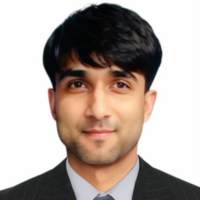
Mustafa Siddiqui
PhD student
Mustafa is a dedicated PhD student at
The University of New South Wales (UNSW Sydney), specialising in the development of advanced Digital Twin models for optimising manufacturing processes.
-
Read Mustafa Siddiqui's Bio
Mustafa Siddiqui is a PhD student at The University of New South Wales (UNSW Sydney) specialising in the development of advanced Digital Twin models for optimising manufacturing processes, particularly for Omni Tankers Manufacturing Plant.
His research integrates AI and Machine Learning with Digital Twin technology to enhance manufacturing efficiency by detecting and mitigating manufacturing bottlenecks, which are significant obstacles that slow down production.
His research also focuses on ensuring efficient resource allocation, production scheduling, and strategic decision-making in manufacturing operations.
With a background in publishing research on AI-enabled digital twins and machine learning applications, Mustafa is committed to advancing industrial technology and enhancing operational efficiency in global manufacturing.
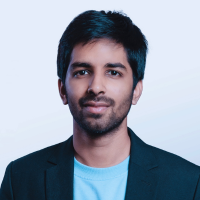
Saral Mittal
PhD student
Saral is a Mechanical Engineering PhD candidate with ACM CRC research partner,
The University of New South Wales (UNSW Sydney). Prior to this, he completed his Bachelor's degree with Honours in Mechanical Engineering at IIT Bombay, India.
-
Read Saral Mittal's Bio
Saral is a Mechanical Engineering PhD candidate with ACM CRC research partner, The University of New South Wales (UNSW Sydney).
Prior to this, he completed his Bachelor's degree with Honours in Mechanical Engineering at IIT Bombay, India.
He also possesses significant industrial experience, having worked with Airbus as a Modeling & Simulation Engineer.
Saral's research focuses on developing innovative inverse design frameworks for tailored composite materials. This involves an integration of cutting-edge additive manufacturing techniques, data-efficient neural network models, and nature-inspired hierarchical design principles. His work also includes the characterisation and modelling of multi-scale structural features to accurately replicate the physical responses of advanced composite architectures.
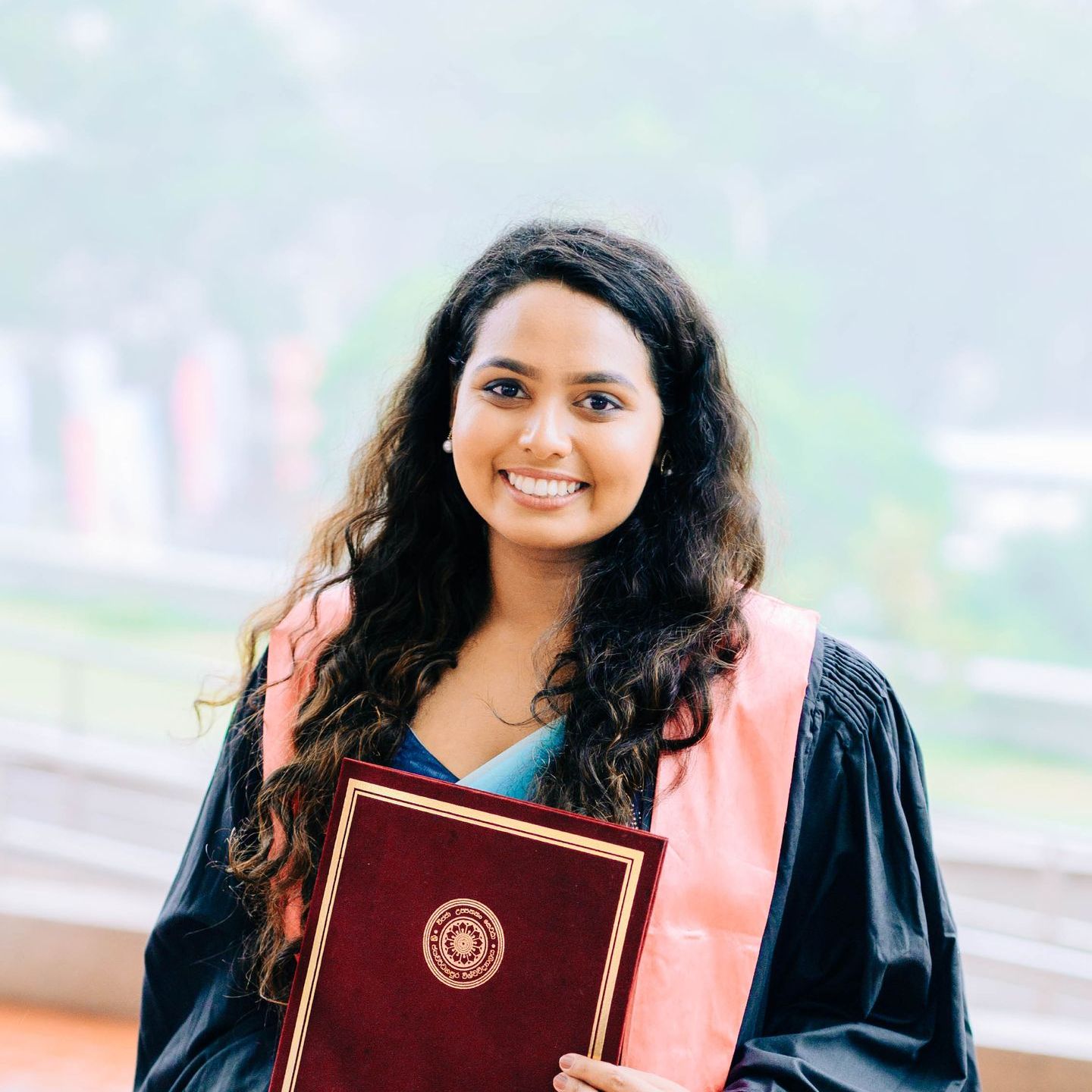
Sachini Dissanayake
PhD student
Sachi is pursuing her doctorate in designing and investigating a durable self-healing epoxy coating, at Deakin University.
-
Read Sachini Dissanayake's Bio
Sachi is pursuing her doctorate in designing and investigating a durable self-healing epoxy coating, at Deakin University.
She completed her BSc (Hons) in Polymer Chemistry at the University of Sri Jayewardenepura in Sri Lanka, and now aims to develop a coating capable of autonomously and repeatedly restoring its properties under typical environmental conditions that, in the long term, will serve as a protective layer to enhance the durability of composite materials.
Sachi is fascinated by materials with unique functionalities – materials that can change shape or even clean themselves – and truly believes that functional materials are the future and hold the potential to transform our world.

Sebastien Richard
PhD student
Sebastien is a PhD student at The University of New South Wales (UNSW Sydney) specialising in fluid-structure interaction to optimise the performance of surfboards.
-
Read Sebastien Richard's Bio
Sebastien is a PhD student at The University of New South Wales (UNSW Sydney) specialising in fluid-structure interaction to optimise the performance of surfboards.
He graduated from Polytech Annecy-Chambéry, the engineering school of Savoie-Mont Blanc University in France, specialising in mechanics and composite materials. Sebastien earned his diploma after completing two years in a preparatory class, equivalent to a bachelor's degree, followed by three years at the engineering school, which is equivalent to a master's degree.
His main research focuses on drag reduction by examining how riblets influence surfboard characteristics, particularly speed, to enhance hydrodynamic performance. Inspired by shark scales, the riblet effect can significantly contribute to this improvement.
Sebastien is involved in the Gowing Bros project, Manufacturing Automation for Smart Travel Surfboard, where he focuses on numerical studies and prototype testing. With a background in mechanical engineering and composite materials, he is well-equipped to conduct the experimental and computational studies essential for the success of this project.
Why this team?
The ACM CRC team have the combined expertise to help achieve the impact needed in the Australian composites manufacturing space.

Australian Composites Manufacturing
Cooperative Research Centre
(ACM CRC)
Level 1, Greenhouse
180 George Street
SYDNEY NSW 2000
SITE LINKS
FOLLOW US
Acknowledgement of Country
In the spirit of reconciliation, ACM CRC
acknowledges the Traditional Custodians
of country throughout Australia and
their connections to land, sea and community.
We pay our respect to their Elders past
and present and extend that respect
to all Aboriginal and Torres Strait Islander
peoples today.
STAY INFORMED
Australian Composites Manufacturing CRC
Website by Rogue Web Design


